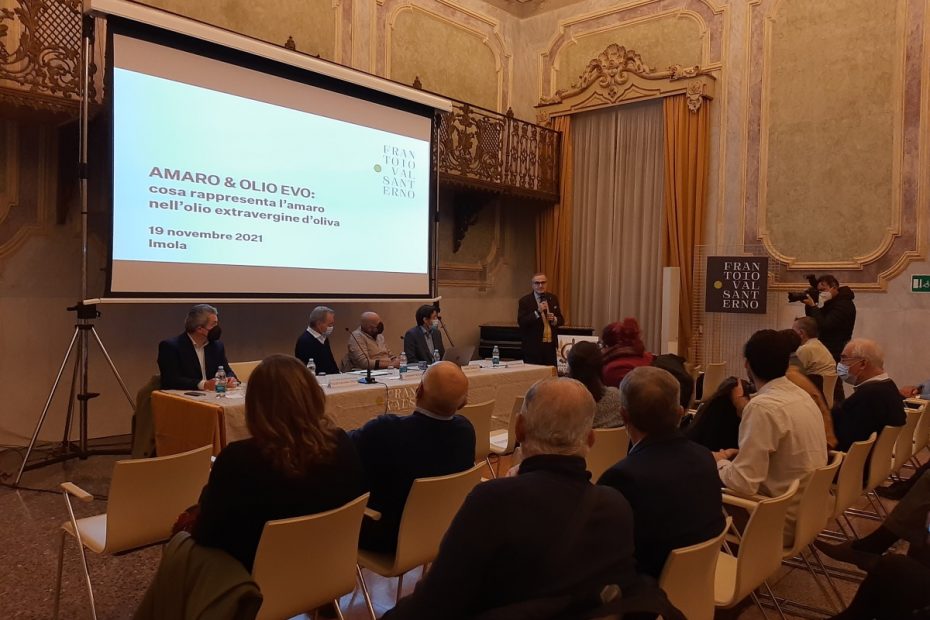The conference dedicated to “Bitter and Olio EVO” was held yesterday on Friday 19 November in the spaces of the eighteenth-century theater of the city of Imola. The event was organized by Frantoio Valsanterno as part of the annual Imola Baccanale festival, this year dedicated to bitter taste.
In the presence of the authorities, enthusiasts, olive growers and operators in the sector, the interventions of Ermanno Rocca, president of the Felsineo Extra Virgin Olive Oil Business Network, Patrizio Armaroli, agronomist, Franco Rancini, expert in oil plants, Marco Tonelli, food and wine journalist, and Tullia Gallina Toschi, professor at the University of Bologna, leading expert in the field of Extra Virgin Olive Oil.
After the greeting of the councilor for production activities Pierangelo Raffini and the introduction by Ermanno Rocca on Quality Certifications and the importance of networking between producers, the speakers explored the theme of bitterness in Extra Virgin Olive Oil from various points of view.
Patrizio Armaroli illustrated the production areas, the typical varieties of the area and the types of systems most suitable for obtaining a quality product, focusing on identifying the correct period of olive harvesting and in particular on the differences between traditional and super intensive systems.
From a simple fruit to a complex product: this is the central theme of Franco Rancini’s speech. The oil plant consultant who collaborates with many oil mills in Italy illustrated what types of bitters can be found in an EVO oil and how during the extraction process the organoleptic qualities of the fruit can be preserved through temperature control.
Professor Tullia Gallina Toschi then underlined the beneficial aspects of polyphenols, elements responsible for the bitter taste of EVO oil. “Bitter is an indicator of oil quality, so much so that bitter and spicy are always positive attributes in the tasting sheets of the panels” she recalled. “On the other hand, however, bitterness and spiciness are difficult perceptions because the average consumer who is used to a flat taste”. But as Professor Toschi explained, you can learn how to consume it.
In conclusion, the food and wine journalist Marco Tonelli invited the creation of a network with the chefs of the region to encourage the use and consumption of local cultivars, also combined with dishes from the region. “It is necessary to encourage the contact networks of the various products, involving Slow Food presidents, putting together quality raw materials, people who know how to use and transform them in a respectful way, to stimulate curiosity of the consumer and make him discover different tastes and flavors.”
“We are particularly satisfied with the outcome of this conference, – declared the president Valter Marcolini – it showed that in our territory there are all the ingredients to make the olive sector take great steps forward: an interested public, far-sighted institutions, olive growers sensitive to quality theme but above all ideas and desire to do.”



